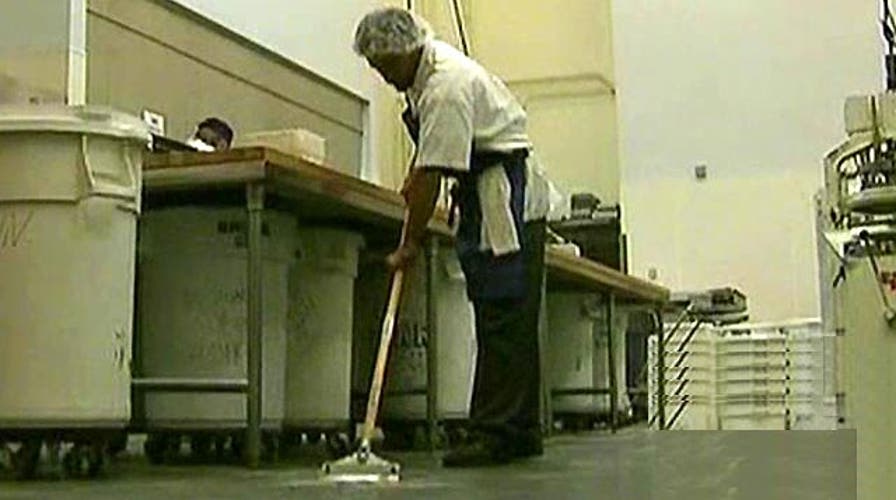Mandate retirement savings for private workers?
William La Jeunesse reports from Los Angeles, California
Is it another case of the nanny state, or an innovative way to help you save?
California lawmakers are pushing a controversial, first-in-the-nation plan that would require private-sector employers to remove 3 percent from every worker's paycheck. The money would go into a new state fund with a guarantee that all withheld funds plus investment gains will be available for distribution at retirement age.
The idea behind the Secure Choice Retirement Savings Program, which got preliminary approval, is for it to be a state-run supplement to Social Security, but only for people who don't have traditional workplace retirement plans. For an estimated 6 million working Californians, the benefit of a pension or 401(k) is out of reach -- so state lawmakers are trying to implement the new mandatory retirement fund for private sector workers.
But critics wonder how the state with a turbulent record of budget keeping and a much-ridiculed public worker pension system can be counted on to protect people's money.
"I think you'll find out that what is promised in the (Secure Choice plan) is not possible to deliver," lobbyist Marc Burgat contends. "If you could deliver guaranteed returns with less than one percent costs, no employer liability, no government liability -- that's a fantasy."
There is also concern that this is another example of government do-gooders trying to force better behavior by its citizens.
But for years, financial experts have warned that people shouldn't solely depend on their Social Security benefits for retirement income. The average California retiree only collects $14,000 per year in Social Security. Advocates of this new effort say the supplemental savings plan will provide a needed boost to retirement needs.
"There are pros and cons to the various approaches," behavioral finance expert Shlomo Benartzi explained to Fox News. "But I think the critical ingredient is to make it easier for people to save for retirement."
Benartzi, who teaches at UCLA and represents the Allianz Global Investors Center for Behavioral Finance, understands the argument of critics but but disagrees that this is an area where the government should butt out.
"We eat too much. We drink too much. We don't save enough. I think the difference in the case of savings is that I think we can fix it. By making it easier to spend less and save more," he said.
Fox News talked to several California workers whose employers don't offer them retirement benefits -- the exact people the Secure Choice program is designed to help. Each liked the idea.
"Most people can't save money and then to save it for when you're retired is very hard. It would be like saving it for 50 years," said Coty, a waitress.
Pascal, who works on movie sets, said, "you need to look for the future and it's just too hard at this point to do it by yourself."
Employers who don't conscript workers into the program are subject to fines, though they will not have to provide any matching funds.
Burgat wonders if that requirement will soon follow.
"So for the employer in California, it becomes another huge burden in a state that CEO magazine is already calling the state that is the hardest to do business in America. It just becomes another opportunity for liability. Another opportunity for a lawsuit and yet another burden we're placing on the employer," Burgat said.
The California plan is the first in the nation, though other states have expressed interest as well as lawmakers in Washington. Before Secure Choice can go into effect, it must get approval from the IRS and U.S. Labor Department. Lawmakers must also vote on it again once a feasibility study is complete. That is expected to happen next year.





